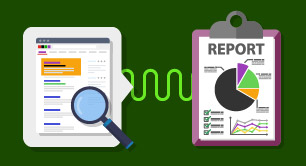Russian market-leading search engine Yandex, has opened up access to a Latin-alphabet index it has been compiling for the last two years with most content in the English language. A statement from Yandex explained that the principle objective is to provide Latin-alphabet results to Russian searchers, “web users in Russia look for, first and foremost, locally relevant information in their own language, with foreign websites being only an extension to local search results. However, it may happen so that the user wants to receive an answer specifically from a foreign website. Yandex can now satisfy this need in only one click.”
According to the Yandex statement they will index content in whatever Latin-alphabet language is searched for by Russian users who search roughly 12-15% of the time using Latin-alphabet searches. They claim they are not indexing the whole web or going into direct global competition with Google. However, as English will definitely lead the way on this – it does mean they will rub up more directly agains their number one Russian threat – Google.ru.
Google has always had the advantage of giving Russian searchers the option of finding content in languages other than Russian which has made them attractive for the more internationally-minded Russians or those seeking technology. Yandex now provides the option to search and find content in Russian or English – and if the best results are in English these can easily be translated back into Russian with Russian results being found at the same time.
At the same time, the have also created a Latin-alphabet version of the normally Russian-alphabet search engine at Yandex.com – which means that as of today they have entered the market place in competition with Google as well as giving English-speaking users more awareness of their technology. The battle for pre-eminence in Russia has been hot for years with Yandex maintaining its position at the top of market though with occasional strong approaches – so this can be seen as an aggressive defensive move.
Currently, they have four billion pages indexed in Latin-alphabet languages.
Andy Atkins-Kruger
Latest posts by Andy Atkins-Kruger (see all)
- Launching our new concept – Webcertain In-house! - July 26, 2019
- Yes, the robots are here and they’re running Google Ads! - April 10, 2019
- Be prepared: A personal message from Webcertain’s CEO - May 15, 2018






[…] Yandex Launches Search Results in English and Latin Alphabet Languages […]